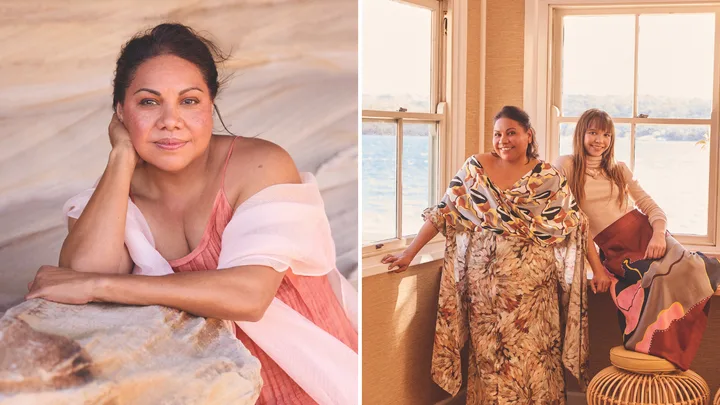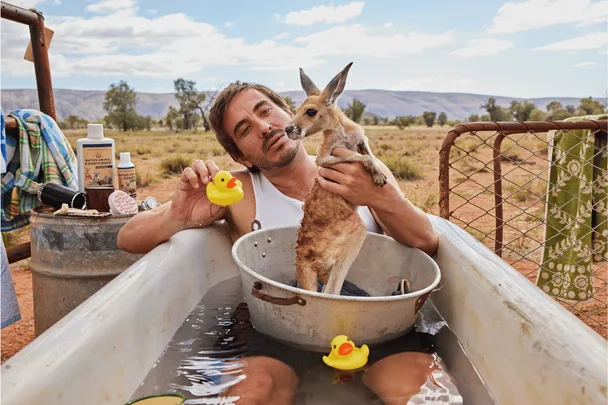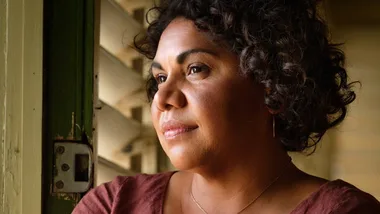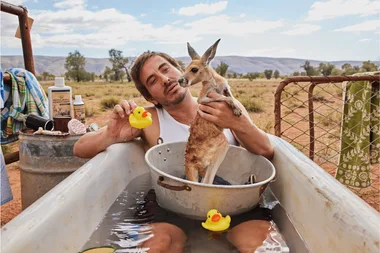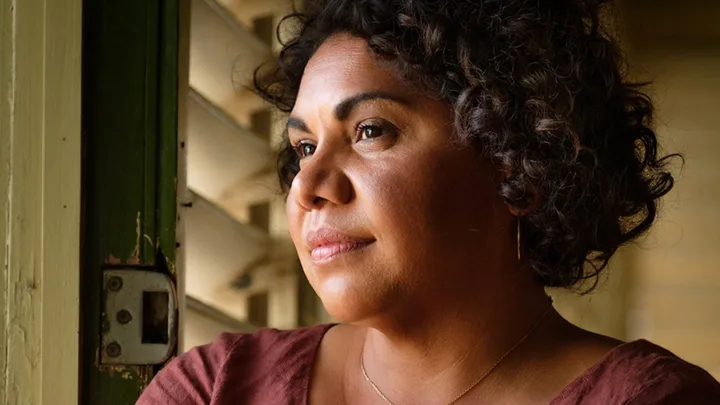It felt like a stroke of serendipity. Whipped by wintery winds as we hustle along the beachfront in Sydney’s Neilson Park, our Digital Cover Star Deborah Mailman wraps a protective arm around her newest co-star, Lily Whiteley. It’s the first week of July, the start of NAIDOC Week, and for 14-year-old newcomer Lily, this is the very first time she’s been interviewed and photographed for a magazine.
We’re here to talk about the upcoming movie Kangaroo. For Lily, this is not only her debut role, but she’s also the film’s leading lady. So to say the Brisbane-based teen is nervous is an understatement. But for Deb, 53, who has had a long career on stage and screens both big and small, who has faced thousands of inquisitive questions from journalists and finessed every pose, this is a chance to pass on what she has learned to a new generation. A generation, she says, is far more mature and confident than she was at their age.
“I’m doing this for Lil,” she says of what brought her out on this blisteringly cold morning, watching the girl who plays her onscreen daughter blossom in front of our cameras despite the inclement conditions. “I think it’s really fitting that we’re doing this shoot and having this interview during NAIDOC Week.
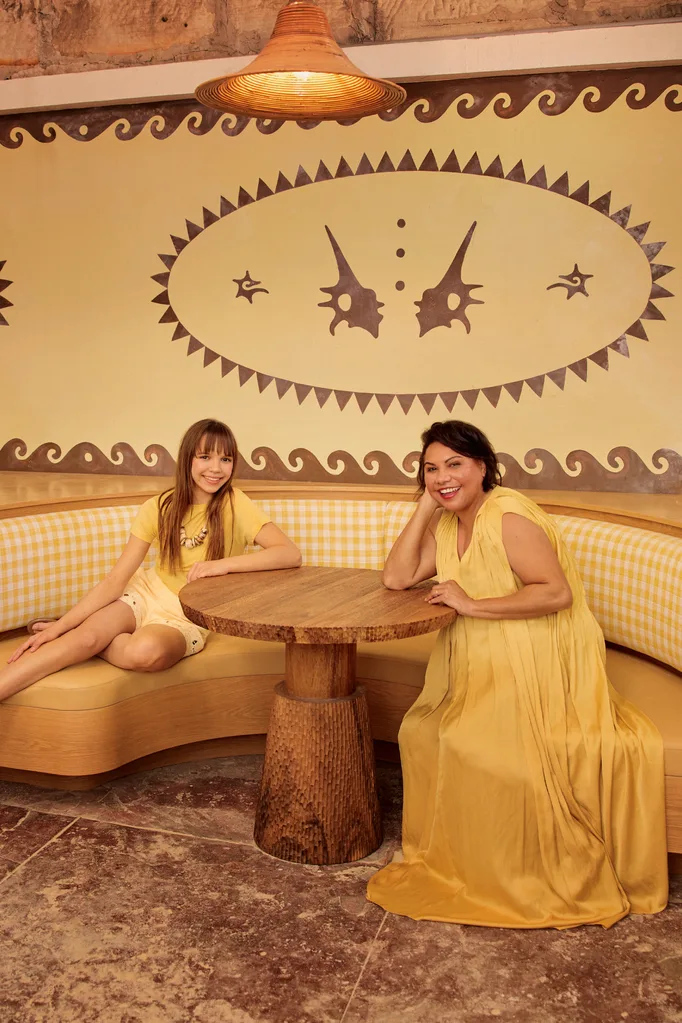
“The theme being The Next Generation: Strength, Vision and Legacy. For us mob who’ve been doing it for a while, it’s all about looking after the next generation and taking care of them. It’s our duty. I think all of us (working on the film) really wanted to make sure that Lil was kept safe. That she was looked after. And that she felt, as an artist, that she had the ability to do whatever she needed, knowing we were all looking after her.”
“The first time I met Deb,” Lily smiles, “she just gave me a big hug, and I just felt so comfortable with her already.”
This is the power of Deb Mailman. Her warmth is all-enveloping, her kindness evident in every act, big or small. Her laugh is infectious. And her ability to put those around her at ease made her the gentlest of landings for Lily. Especially as she starts her journey into the public eye.
For Lily’s mum, Tameka, it was comforting to know that Lily, who is shy despite her fearlessness when it comes to acting, was being looked after.
“It was a whole new world, going onto a film set,” she says as she watches on from the sidelines.
“We didn’t know what to expect. But Deb just embraced both of us. We spent lots of time together. She’s a beautiful person.”
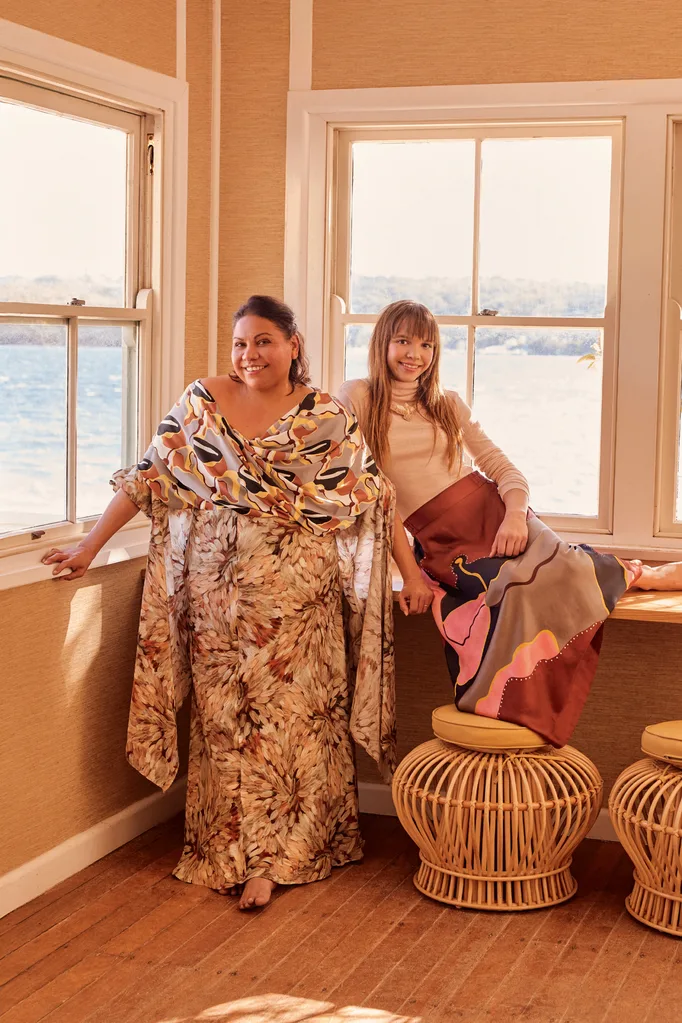
Deb organised a weekend trip to Uluru. She had sleepovers for the younger cast members at her house. There they’d watch movies and hang out together while their parents took a night off. She was “like my second mum on set”, says Lily. “She always looked out for me and cared for me.”
Growing up in Queensland’s Mount Isa, Deb learnt the power of hard work from a young age thanks to her parents, Wally, a champion rodeo rider and proud Bidjara man and Māori (Ngāti Porou and Te Arawa) mum Jane. As a First Nations child, Wally would tell his five kids they would need to work twice as hard to achieve what their non-Indigenous counterparts could.
“All of us kids grew up with a really strong work ethic from both Mum and Dad, and that’s not something to waste,” she says.
She started studying drama in high school, she says, not to be an actor, but to gain confidence – to grow her self-esteem. The fact that she not only loved it but was clearly very good at it would unlock an unexpected career, which has seen her become one of the most sought-after stars of her generation.
“I didn’t have the maturity and confidence these younger people have,” she shares of herself at Lily’s age. “If anything, I was awkward. And also, I needed to do something, and I didn’t want to do business principles! But over the years, I found that doing this subject in high school helped me to stand in front of people. And then it got to a point where I went, ‘I’m really enjoying this.’ Then it was like, ‘Oh s**t, I can train in this and make this my job!’ And then once I made that decision, it was like, ‘I’m doing this.’”
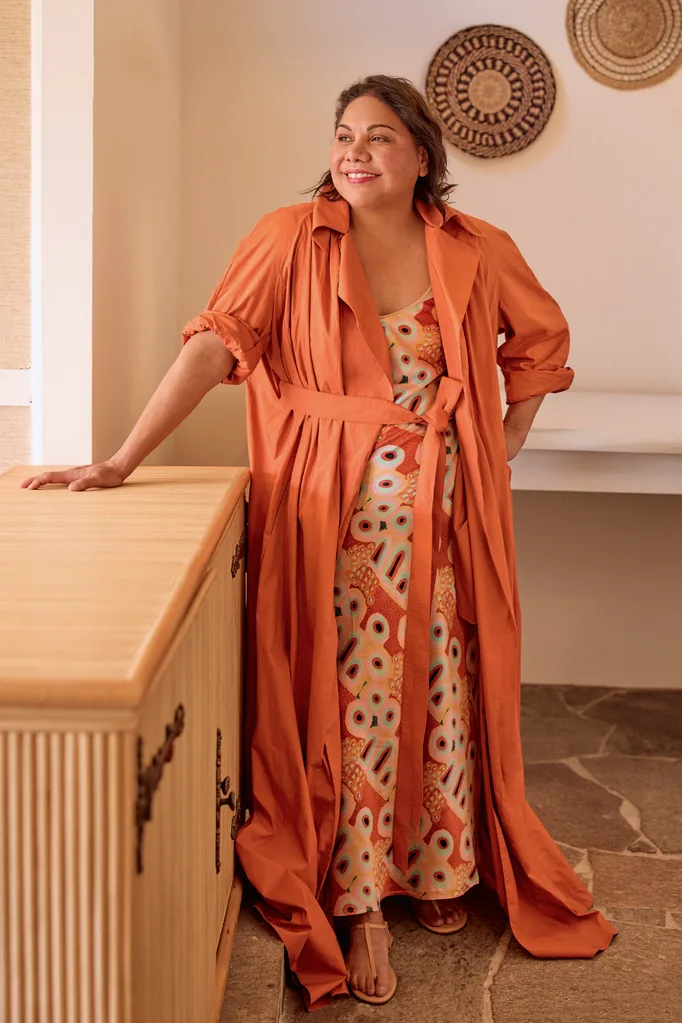
She studied performing arts at QUT and then broke into the industry, treading the boards, of which much of her work, she says, was with an Aboriginal Theatre company.
“There was a lot of mob around, which was really great,” she reflects now. “I didn’t come into the film and TV industry until much later – it was theatre for ages before I leapt over. And in the theatre world, there was a lot of support and caring for each other.”
The same representation didn’t exist on screens at that time, however. When Deb made her film debut in 1998’s Radiance, she was transcendent. The role would win her Best Actress at the AFI Awards. She was the first Indigenous woman to receive the gong.
“The path didn’t just appear in front of me,” she says with typical modesty of the impact she would have in changing the TV landscape for more to follow, with a starring role in megahit The Secret Life of Us following shortly thereafter. “That was already paved by many generations before me. There were a lot of people fighting the most important fight. So I’m an absolute beneficiary of everyone who has gone before. In terms of the bigger picture, I was able to do what I have because of the women – and the men – who came before.”
Lily was three years old when she started gymnastics. Her mum put her into the sport, she says, “because I just loved cartwheeling everywhere.” She had progressed in leaps and bounds, becoming a national champion who thought she’d go on to represent Australia in the Olympics.
And then she went to see Courtney Monsma in Frozen when she was 11.
“She loved it so much that I took her four times,” Tameka laughs. “And on closing night, she said, ‘That’s what I want to do. It looks like hard work, but it looks really fun.’ And so she finished Junior International that following year and then swapped over to performing arts.”
At 12, she got a role in Billy Elliott. And then Tameka saw a Facebook post talking about auditions for a movie called Kangaroo.
Based on the true-life tale of Chris ‘Brolga” Barn who started a sanctuary for rescued orphaned baby kangaroos as well as adult ones, the film is brought to life by the team behind Paddington.
With a huge cast of Aussie stars, including leading man Ryan Corr, Deb, Wayne Blair, Brooke Satchwell, Ernie Dingo, Roy Billing and many more on board, producers were hunting for the role of young Indigenous girl Charlie, who would form the heart of the family-friendly movie as well as being the film’s leading lady.
“We got some scripts back and I recorded them,” says how she came to beat 300 other hopefuls for the role. “And then one day, we were in the Red Rooster drive-through and got a call saying I had a callback. I flew to Sydney, and then on the second day, they told me I got the role.
“I was kind of nervous, but my mum said if I didn’t like it, I wouldn’t have to do it again. So I just gave it a go – and I actually really like it!”
“She really took to the camera,” says Deb of the transformation that came over Lily when she stepped on set.
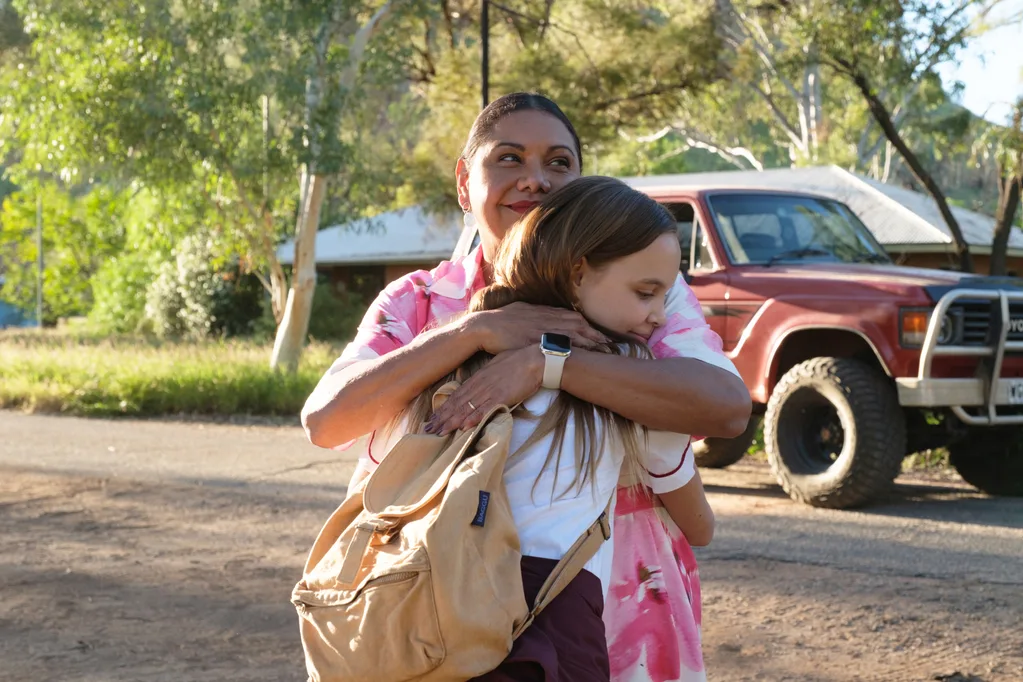
“I don’t know if there was any (advice) I needed to pass on in terms of performance. If anything, it’s just to tell her to have fun. To really enjoy this moment and what is in front of her. To not overthink things and just be in the moment. And know that we are all here for you.
“Because at the end of it all, there’s no point in doing this if you don’t really enjoy it. Life is too short.”
In her younger years, Deb says, she worked herself to the point of breaking. In 2012, she was a mum to two young children – her sons Henry and Oliver (who are now 18 and 15 respectively) – when she realised she didn’t need to say yes to everything.
“It was a fabulous year, actually,” she says of her decision. “But my kids were really small. We filmed The Sapphires, Mabo, and Mental back-to-back. Somewhere in the middle, I had to take time off from Offspring, which we were filming in Melbourne. The travel was hectic, and that was the year I went, ‘I’m never doing that again’ because it almost broke me. I’m not just going to keep saying yes.
“Even if it’s great stuff, there’s got to be a point where it’s not healthy for me and it’s not healthy for my kids. I have to find a way to balance it more.”
It helps, she says, to live outside of the city. Her family have lived for years now in the coastal community of Wollongong in NSW. Today, part of her mob are the people she works with – especially the team at Bunya Productions. The other big part is formed by husband Matthew Coonan and their sons, as well as their extended family. But also her mob includes the friends she’s made in her neighbourhood and local gym who have become, she says, “almost like a second family to me.”
“I’d never have thought in a thousand years that I would be a gym person,” Deb laughs. “But I’ve been going for a while now, and I’ve met some really fantastic people. I see them every day, more than I see most other people!
“It’s great that we have that shared experience of getting stronger, getting healthier and having a good laugh at the same time.”
Entering her 50s, Deb says, has made her take stock of her health and ensure she’s taking better care of herself.
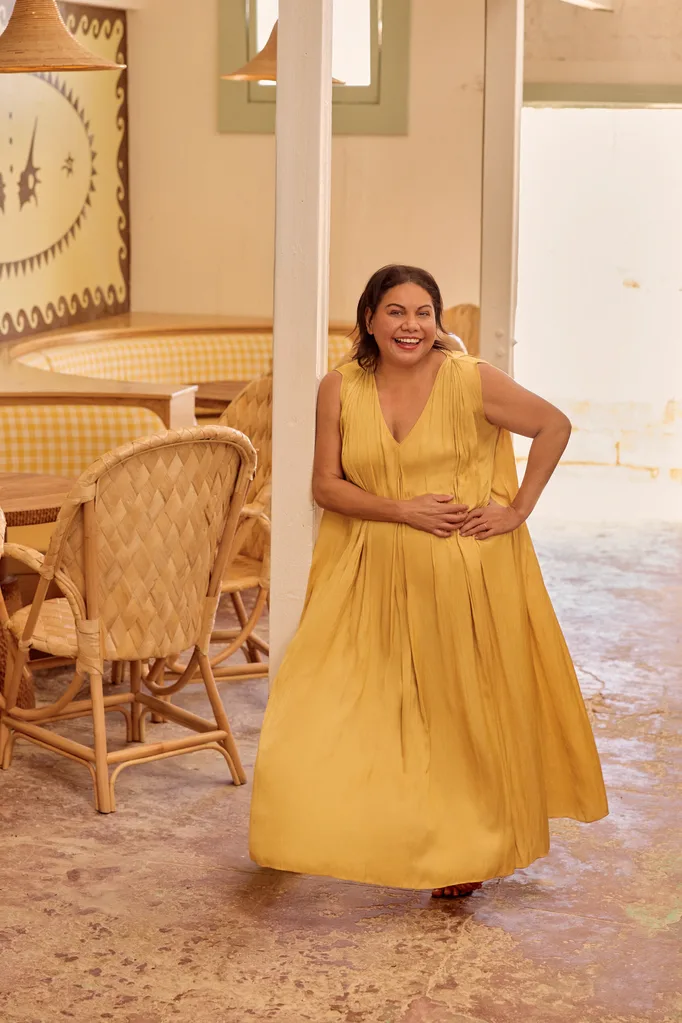
“I have back issues, high blood pressure sometimes,” she shares. “All that stuff that comes with being 53 years of age. I do have to be conscious of making (the gym) a daily habit, but weirdly, I’m stronger physically than I’ve ever been.”
And despite being pickier about the roles she takes on, she’s also busier than she’s ever been.
Having previously joined the board of Screen Australia, she’s recently been appointed to Creative Australia’s new First Nations Board.
“It’s great to be in this position because, as an artist, you don’t often get that opportunity to actually make critical decisions around the industry itself. So it’s great that the world is open to us now. Where we can sit around the table and give over our experience within those conversations. It’s opened my eyes to a lot of things, but I’ve really enjoyed it as well.”
And while her sons are now of an age that they could be distancing themselves from the family matriarch, she is pleased to report that they are closer than ever.
“They are mama’s boys, they love their mama,” she grins. “If anything, I’ve found they become much more cuddly, which is really gorgeous.”
She’s loving this stage of her life, she says. She loves that she can be less serious and laser-focused. That she can sit back and enjoy the fruits of her hard-earned labour.
And as she watches 14-year-old Lily, she loves the ease of knowing that she no longer has to take it all on – there’s a new generation to do that.
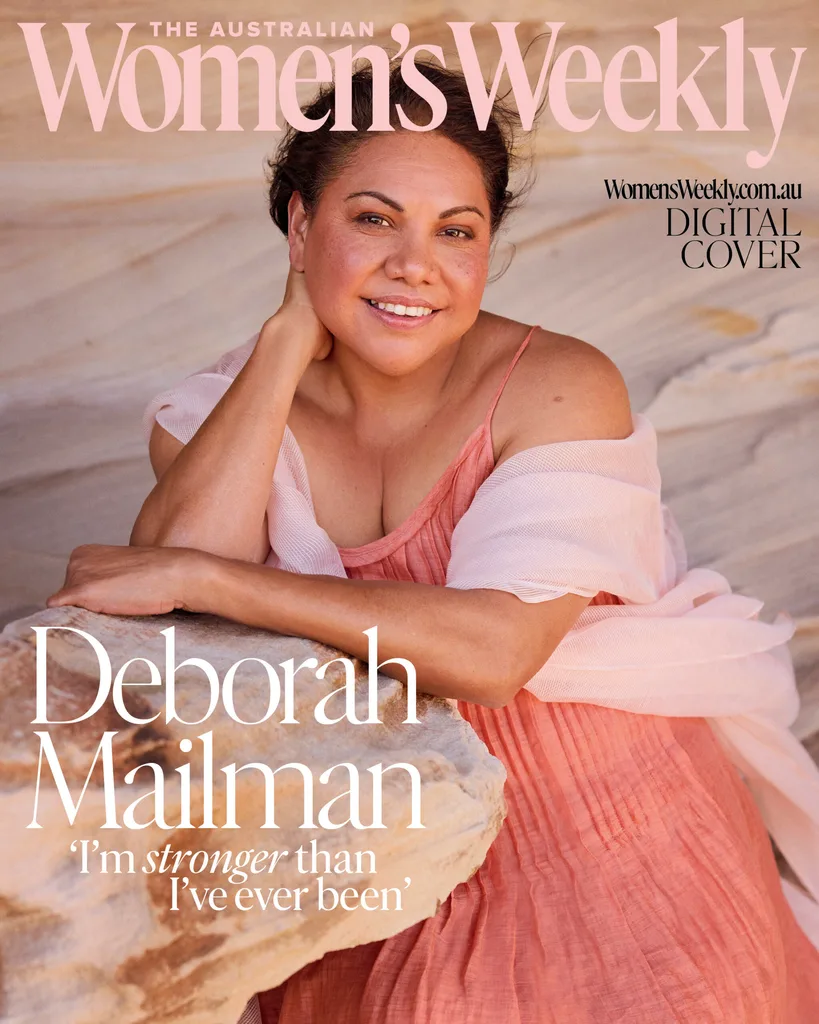
What, we ask, would she tell 14-year-old Deb if she could go back and give her some words of advice?
The answer, she says, has changed of late. Once, she would have said to “not sweat the small stuff and enjoy it a bit more.” Now, she would tell that young girl something entirely different.
“She would need to learn it all on her own,” she says. “All your scars will make you who you are. She’s going to be fine, but she’s got to learn it all on her own.”
Kangaroo will be in cinemas in Australia and New Zealand on September 18.
This article originally appeared in the September 2025 issue of The Australian Women’s Weekly. Subscribe so you never miss an issue.
